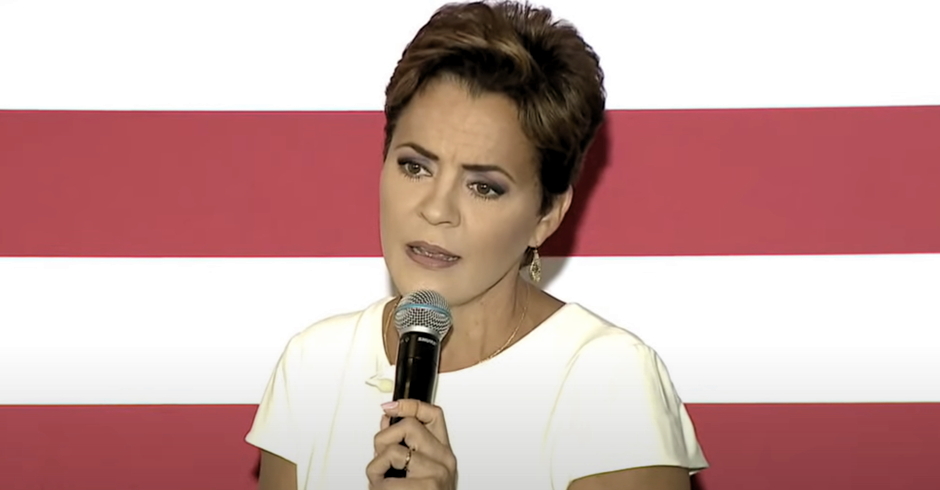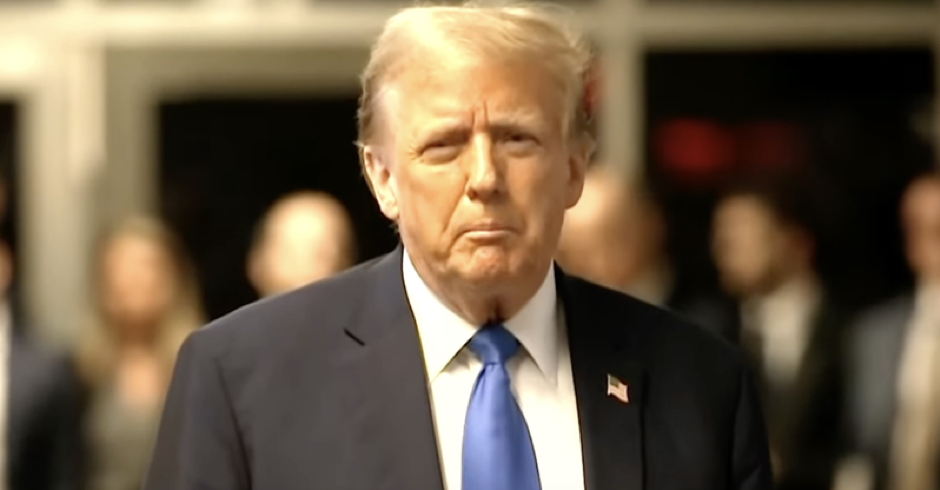Out October: How Was It Being Gay In Bible-Belt Missouri?
Today’s Out October Project post comes from New York-based freelance photographer Charles Ludeke. He shares his process of coming to terms with his sexuality and he also adds a note to all. “Life is what you make it.”
It’s easy to stereotype things you don’t know. Being new to New York, a lot of people are in awe of the fact that I’m from Missouri. Most know nothing of it, let alone where it is. Then when I tell people I’m gay, they’re equally shocked.
“How was it being gay in Missouri?” I frequently get asked.
A fair question.
I grew up in Springfield, which is the buckle of the Bible Belt. And I mean it– the BUCKLE. The Assembly of God denomination has its headquarters there (for those unfamiliar, Southern Baptists call them crazy, but they’re not quite fundamentalists.) I’d say at least ninety-five percent of the town is white. For a town of 200,000, it was very white, very conservative, very Christian and very middle-class. My family and I would joke that when a new building was built, it was either a church, a bank or a restaurant. It was a town many people flocked to in search of The American Dream. Maybe for them it was, but for a closeted, non-Christian, non-conservative teenager? Springfield was something else.
Surprisingly enough, when I did decide to come out in my senior year of high school, I had a fairly easy time. Well, besides the typical inner turmoils we endure when finally being honest with others about who we really are.
“You told them?!?!” I remember being so angry at a friend for telling people that I was gay. In my mind, I told that person because I felt a certain sense of trust. I guess in their mind (it happened with more than one friend), it wasn’t that big of a deal. They also didn’t have to live it.
I started realizing I was attracted to men when I was twelve. I had the next five years to wrack my brain over being gay. I struggled with the sexual desires that my classmates certainly wouldn’t relate to. I didn’t talk about how great some girl’s tits were. I also grappled with trying to find some semblance of normalcy (like every other teenager.) In a school of 1,500 students, I’d say less than five were out. At the time, I didn’t feel that I was like the guy who straightened his hair and wore mascara. I was in the top eight at the state swimming championships on multiple occasions, I was on the principal’s honor roll, I was in yearbook. In my mind, I was a lot like any other kid. So being gay, and having only stereotypical associations of what was gay, fucked with my head. But like I said, it’s easy to stereotype what we don’t know. And I didn’t know anything about being gay.
So when my friends told other friends that I was gay, I freaked out. I was livid. Something that I had internally wrestled with for so long, they shared it with others like talking about what they had for lunch. It was hard not to be upset. Thankfully, none of my friends reacted negatively. None. Having grown up in such a conservative and Christian town, I feared the worst (isn’t everything the worst in our minds?) One of my teammates even called me one afternoon because he had heard people saying I was gay and he wanted to hear it from me, he didn’t want people talking badly about me if I wasn’t. When I told him I was, he said he had my back! People can really surprise me. I had so many friends that were there for me. No one harassed me. My friends were still my friends. No one cared. It was all in my mind. I was very, very lucky.
When college started a few months later, I stayed in Springfield so I could swim. During the first week or two, I met some guys that I thought I wanted to be friends with. But I reverted back to my closeted self. They talked about chicks, tits and had bad senses of humor. I even put up a poster of some bikini-clad girl on my dorm room wall! How pathetic. Luckily, I regained my sensibilities quickly. I knew this was regressing the progress I had made when high school ended and over the summer. So I found new friends. That’s when I met Will. He changed my life forever.
For Will, being gay was a non-issue. He was just himself. Like it or leave it. He didn’t try to impress. He just did his own thing. I had an incredible amount of respect for him. I was in awe of his confidence, the love he had for himself and his overall aura. It was contagious. I started being more comfortable with my sexuality, more confident in who I was and I finally shared interests with a friend. No more talking about having sex with women! What a relief. I didn’t have to sit there and act like I cared. Because when we hung out, I did care.
Besides learning to be more appreciative and loving of myself, Will introduced me to gay social outings. We went to some house parties with the small gay community from our school, I joined the LGBT group on campus and I went to my first gay club — S4 in Dallas. I even had my first boyfriend that year! College was such a 180 from high school. It was so freeing.
But I didn’t just hang out with Will and our other gay friends. I was on the swim team, and these were the people I spent most of my time with. We practiced together 20 hours a week, ate our meals together and lived together. Like the friends I shortly spent time with at the beginning of school and with my friends in high school, being with these guys was like being in some weird hyper-masculine fraternity. Guys, particularly athletic guys, are in a constant drive to prove their manliness. Besides their endless talks of women, the stuff they talked about and were interested in didn’t phase me. They were boring. For the first month, I didn’t tell anyone on the team but a few girls. We had our team initiation at the end of September and the guys put us through the team’s silly rituals. At the end of the night, we were in one big circle and the new swimmers had to say who on the girls’ team we would have sex with.
“Oh God,” I thought.
I was last. When they turned to me, I balked in embarrassment. A few encouraged me by saying that they didn’t care. So I pointed to one of the guys and said him. They all laughed. So that was it. I outed myself (kind of.) Another surprising night, none of them gave me shit for it. They just asked how hot I thought they were, and what number they were on my “sleep with” list. Typical guys. I was just glad it went well.
Another unexpected response happened that year (and has occurred since.) One of the guys from that first group of friends I made at school (we were still friends, just didn’t hang out regularly) told me that he was really glad he met me. He explained that before he knew me, he had stereotypical ideas of what gay people were. But, he told me, I was “normal.”
It’s kind of a funny thing to say, and I imagine other people would’ve responded with “What does that mean?” But I understood. It brought me back to my closeted days trying to figure out myself. I remembered not feeling like the other out gay guys at my high school. I felt more mainstream. My friends saw in me what I saw in myself. I do exhibit a fair amount of stereotypes in my own right (my music taste, anyone?), but I am a fairly middle-of-the-road kind of guy. I appreciated his compliment. I was glad I could make a difference just by being myself. Simple enough, right?
Since then, I’ve made it a point to let people know I’m gay. It’s not a matter of “flaunting my sexuality.” I merely want people to get to know a gay person different than what they see portrayed on TV. My sexuality is as different as someone’s skin tone or hair color. It’s a part of us. This is my activism. I’m not a marcher. I don’t hand out fliers. I don’t lobby. I build relationships. I make connections. People will change quicker than laws. It’s easy for people to stereotype and make negative assumptions of gay people when they don’t know any. But when more of us are willing to come out and speak up, then more people will be able to have positive associations with gay people that know and that they care for. It’s up to individuals to make a change.
# # #
Addendum: I wrote this in mid September, before the recent upswing in teen suicides and the subsequent “It Gets Better” campaign. The phrase is slightly misleading. For those who aren’t out, or are out and still struggling: life doesn’t simply “get better.” You have to make it better.
In high school, I had a pretty rough time. I didn’t like or understand my sexuality, I was constantly condescending to people and I had a negative attitude. That’s what made me miserable. So I changed myself. I began to accept the fact that I was gay, I started treating people with respect and I tried my best to find the positivity in every situation. I love to laugh and smile; it completely changed my mood.
Life got better because I put in the effort to make my life better. I found the things in my life that I love and surrounded myself with them. I found the things that weighed me down and rid myself of those. I love my life, but I wouldn’t if I hadn’t taken steps and time to make it the way it is. Like Ru Paul says, “If you don’t love yourself, then how the hell will anyone else?” It’s true. I learned to love myself, now plenty of people love me too. If you want your life to be better, make it better. You’re the only one who can do it.
You can follow Charles on Twitter.

Enjoy this piece?
… then let us make a small request. The New Civil Rights Movement depends on readers like you to meet our ongoing expenses and continue producing quality progressive journalism. Three Silicon Valley giants consume 70 percent of all online advertising dollars, so we need your help to continue doing what we do.
NCRM is independent. You won’t find mainstream media bias here. From unflinching coverage of religious extremism, to spotlighting efforts to roll back our rights, NCRM continues to speak truth to power. America needs independent voices like NCRM to be sure no one is forgotten.
Every reader contribution, whatever the amount, makes a tremendous difference. Help ensure NCRM remains independent long into the future. Support progressive journalism with a one-time contribution to NCRM, or click here to become a subscriber. Thank you. Click here to donate by check.
 |











